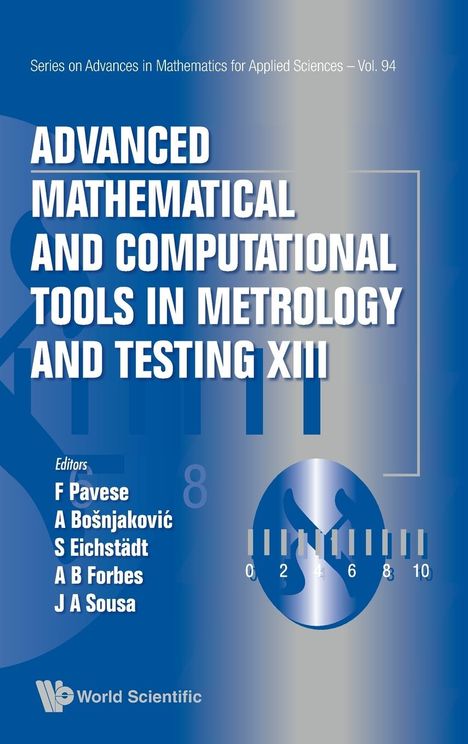Pavese Franco: Adv Math & Comp Tool Metrol Xiii, Gebunden
Adv Math & Comp Tool Metrol Xiii
(soweit verfügbar beim Lieferanten)
- Verlag:
- World Scientific, 11/2024
- Einband:
- Gebunden, HC gerader Rücken kaschiert
- Sprache:
- Englisch
- ISBN-13:
- 9789819800667
- Artikelnummer:
- 12074839
- Umfang:
- 368 Seiten
- Gewicht:
- 683 g
- Maße:
- 235 x 157 mm
- Stärke:
- 24 mm
- Erscheinungstermin:
- 25.11.2024
- Hinweis
-
Achtung: Artikel ist nicht in deutscher Sprache!
Klappentext
This volume contains original, refereed contributions by researchers from national metrology institutes, universities and laboratories across the world involved in metrology and testing. The volume has been produced by the International Measurement Confederation (IMEKO) Technical Committee 21, Mathematical Tools for Measurements, in association with IMEKO Technical Committee 6, Digitalisation, and the European Network for Mathematics and Statistics for Metrology, following presentations made at the Advanced Mathematical and Computational Tools in Metrology online conference, hosted by the Institute of Metrology of Bosnia and Herzegovina, Sarajevo, in September 2023. The volume covers the application of novel mathematical and statistical modelling techniques and data analysis and machine learning approaches to metrology and measurement science, uncertainty quantification, and knowledge representation and reasoning to enable the digitalization of metrological services.
This volume is of interest to all researchers, data scientists, engineers and practitioners who need to characterize the capabilities of measurement systems, evaluate measurement data, quantify uncertainties and make inferences and decisions based on models and data. It will also be of interest to those working in the quality infrastructure concerned with the reliability, transparency, trustworthiness and reproducibility of data, data analytics, machine learning and AI, in engineering, physical, environmental and the life sciences.



